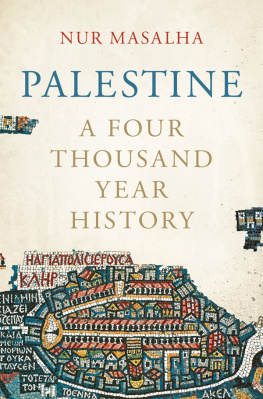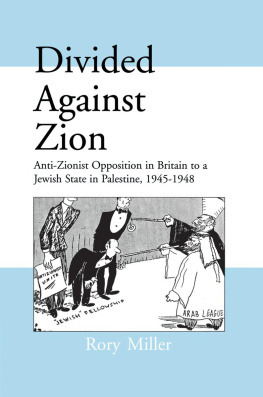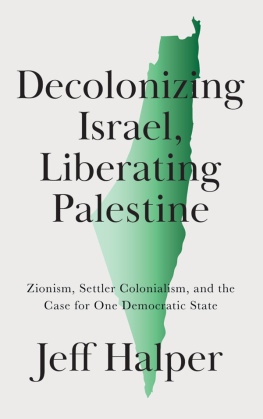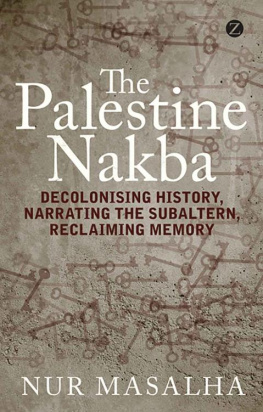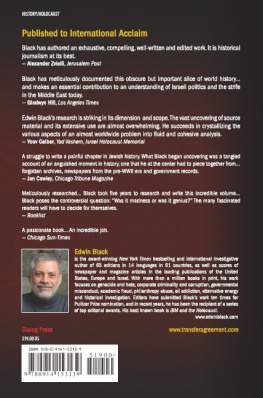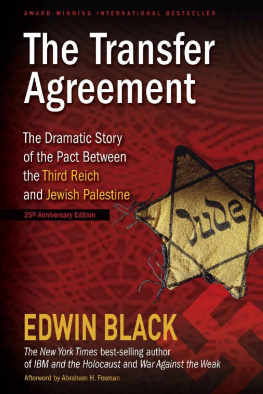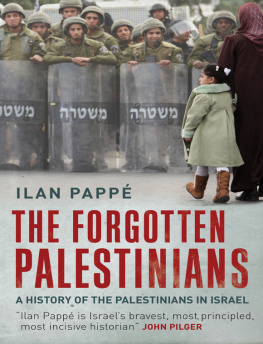Masalha - Expulsion of the Palestinians: The Concept of Transfer in Zionist Political Thought, 1882-1948
Here you can read online Masalha - Expulsion of the Palestinians: The Concept of Transfer in Zionist Political Thought, 1882-1948 full text of the book (entire story) in english for free. Download pdf and epub, get meaning, cover and reviews about this ebook. year: 2012, publisher: Institute for Palestine Studies, genre: Politics. Description of the work, (preface) as well as reviews are available. Best literature library LitArk.com created for fans of good reading and offers a wide selection of genres:
Romance novel
Science fiction
Adventure
Detective
Science
History
Home and family
Prose
Art
Politics
Computer
Non-fiction
Religion
Business
Children
Humor
Choose a favorite category and find really read worthwhile books. Enjoy immersion in the world of imagination, feel the emotions of the characters or learn something new for yourself, make an fascinating discovery.

Expulsion of the Palestinians: The Concept of Transfer in Zionist Political Thought, 1882-1948: summary, description and annotation
We offer to read an annotation, description, summary or preface (depends on what the author of the book "Expulsion of the Palestinians: The Concept of Transfer in Zionist Political Thought, 1882-1948" wrote himself). If you haven't found the necessary information about the book — write in the comments, we will try to find it.
Masalha: author's other books
Who wrote Expulsion of the Palestinians: The Concept of Transfer in Zionist Political Thought, 1882-1948? Find out the surname, the name of the author of the book and a list of all author's works by series.
Expulsion of the Palestinians: The Concept of Transfer in Zionist Political Thought, 1882-1948 — read online for free the complete book (whole text) full work
Below is the text of the book, divided by pages. System saving the place of the last page read, allows you to conveniently read the book "Expulsion of the Palestinians: The Concept of Transfer in Zionist Political Thought, 1882-1948" online for free, without having to search again every time where you left off. Put a bookmark, and you can go to the page where you finished reading at any time.
Font size:
Interval:
Bookmark:
Expulsion of the
Palestinians
The Concept of Transfer
in Zionist Political Thought
18821948
Nur Masalha

The Institute for Palestine Studies, founded in Beirut in 1963, is an Independent nonprofit Arab research and publication center, which is not affiliated to any political organization or government. The opinions expressed in its publications do not necessarily reflect those of the Institute.
1992 by the Institute for Palestine Studies
All rights reserved
First Printing: September 1992
Second Printing: July 1993
Third Printing: January 1999
Fourth Printing: December 2001
Fifth Printing: August 2009
Library of Congress Cataloging-in-Publication Data
Masalha, Nur. 1957
Expulsion of the Palestinians: the concept of transfer in Zionist political thought, 18821948/Nur Masalha.p. cm.Includes bibliographical references and index.ISBN 978-0-88728-242-3 (pbk.)1. Jewish-Arab relations19171949. 2. Population transfersPalestinian Arabs. 3. ZionismHistory. 1. TitleDS119.7.M3139 1992
320.54095694-dc20
92-9654
CIP
Printed in the United States of America
Contents
ONE |
TWO |
THREE |
FOUR |
FIVE |
Many acknowledgments are in order. First, I am particularly grateful to Professor Walid Khalidi, General Secretary of the Institute for Palestine Studies, who encouraged me to undertake this project. I thank him and the Institute for Palestine Studies (IPS), for granting me the Institutes Constantine Zurayk Fellowship sponsored by Mr. Abdel Muhsin al-Qattan. At IPS, my indebtedness is to Ms. Linda Butler for her extensive editing of and contribution to the text, and to Mr. Mark Mechler for his production of the book. I would also like to thank the staff of the Public Record Office (PRO) in Kew (London) for the help they provided while I used their files. In Israel, I am grateful for the assistance I received from the staff of the Central Zionist Archives in Jerusalem, the Hashomer Hatzair (Givat Haviva) Archives, and the Institute for Settlement Research in Rehovot. Finally, I owe an invaluable debt to my wife, Stephanie for all she endured during my travel and research in Israel, as well as for her insightful comments while this work was being written.
Nur Masalha
Preface to the eBook
Expulsion of the Palestinians
The year 2012 marks the sixty-fourth anniversary of the Nakba , the catastrophic uprooting of the Palestinians and the dismemberment and de-Arabization of Palestine in 1948. The name Palestine was wiped off the map. Some five hundred villages and towns disappeared; markers of the Palestinian presence on the land that had survived the Crusades were obliterated to make way for a new militarized European immigrant-settler community. This is also the twentieth anniversary of the publication of my book Expulsion of the Palestinians, which traced the development of the concept of the transfer of Palestinians by the Zionist leadership in the decades before 1948. The Institute for Palestine Studies, in recognition of the continuing importance and relevance of the subject, has chosen this occasion to release my work in eBook form.
Transfer was the main euphemism (there were others) used by Zionists for the expulsion of Palestinians from their country in order to create the would-be Jewish state. Transfer was essential to the Zionist project, as it was impossible to create a Jewish majority in Palestine without somehow removing the indigenous population. Transfer rhetoric was embedded in the racist and dehumanizing European Zionist colonial perception that the Land of Israel Palestine is a Jewish birthright belonging exclusively to the Jewish people. Consequently, it treated Palestinian Arabs as strangers and squatters who could either accept Jewish sovereignty over the land or leave.
Drawing on a range of sources, especially primary Hebrew-language Zionist archival material, Expulsion of the Palestinians documents the Zionist leaders preoccupation with transfer, especially from the mid-1930s onwards. The most important Zionist leaders Theodor Herzl, David Ben-Gurion, Chaim Weizmann, Berl Katznelson, Moshe Sharett, Zeev Jabotinsky, and others all advocated transfer. These advocates of transfer saw nothing immoral about the idea, and even transfers Zionist critics opposed it on political and practical, not moral, grounds. For them all, the post-World War I population exchange of Greeks and Turks served as a convenient precedent for Palestine. Uprooting Palestinians and transferring them to Arab countries Jordan, Syria, and Iraq were most often suggested was depicted as a mere relocation from one district to another. Since Palestinians allegedly had few real ties (and no rights) to Palestine, Zionist leaders rationalized, the uprooted would be just as content outside the Land of Israel.
Transfer and the Zionist denial of the Palestinians national identity and right to self-determination were inextricably linked. Transfer advocates asserted that Palestinians were not a distinct people tied to their homeland but mere Arabs, an Arab encampment, or an Arab population that happened to reside in the Land of Israel. If Palestinians did not constitute a distinct nation, were not integral to the country, and lacked historical ties to it, then they could be transferred to other Arab countries without prejudice. And if Palestinians were merely a small local portion of the larger Middle Eastern Arab population, then their political representatives could be bypassed. Zionists therefore dealt over the Palestinians heads with Arab leaders, for example with King Abdullah of Transjordan in pursuit of the so-called Jordanian option. Zionist discourse referred, and continues to refer, to vast Arab territories where Palestinians should dwell with the rest of the Arab people.
Transfer remained theoretical until the great wave of Jewish immigration to Palestine in the mid-1930s, and the British endorsement in 1937 of the partition of Palestine into separate Arab and Jewish states made establishing a Jewish state with a Jewish majority a realistic possibility. From this point on, transfer occupied a central position in the Zionist movements strategic thinking and the practical planning of the Jewish Agency (the effective Yishuv government led by David Ben-Gurion) to solve the land and demographic problems facing the creation of a Jewish state.
Although transfer as the preferred Zionist solution to the Arab question was constant until 1948, its envisaged modalities changed over the years. From the mid-1930s specific transfer plans were produced by Yishuv officials and organs of the Jewish Agency and the Jewish National Fund. The transfer mindset also massively informed the Haganahs military plans which, when applied with brute force in 1947-48, led to the expulsion of three-quarters of a million Palestinians and the destruction of Mandatory Palestinian society.
Memories of pre-1948 life and the shock, humiliation, and suffering wrought by the mass displacements of 1948 (and 1967) continue to shape Palestinian politics. The Nakba as a continuing trauma occupies a central place in the Palestinian psyche. It drastically changed the lives of the Palestinians at both the individual and national levels and continues to structure Palestinians lives and to suffuse Palestinian political culture, education, popular arts, poetry, and cinema.
It has also led to the consolidation of a distinct and resistant Palestinian identity. Today, more than six decades after the Nakba, some two-thirds of the eleven million Palestinians are refugees or internally displaced persons. The Israeli state continues to colonize, subjugate, dehumanize, and dispossess the indigenous people of Palestine. With millions still living under Israeli military occupation or in exile, the Nakba is a pervasive state of being.
Next pageFont size:
Interval:
Bookmark:
Similar books «Expulsion of the Palestinians: The Concept of Transfer in Zionist Political Thought, 1882-1948»
Look at similar books to Expulsion of the Palestinians: The Concept of Transfer in Zionist Political Thought, 1882-1948. We have selected literature similar in name and meaning in the hope of providing readers with more options to find new, interesting, not yet read works.
Discussion, reviews of the book Expulsion of the Palestinians: The Concept of Transfer in Zionist Political Thought, 1882-1948 and just readers' own opinions. Leave your comments, write what you think about the work, its meaning or the main characters. Specify what exactly you liked and what you didn't like, and why you think so.

